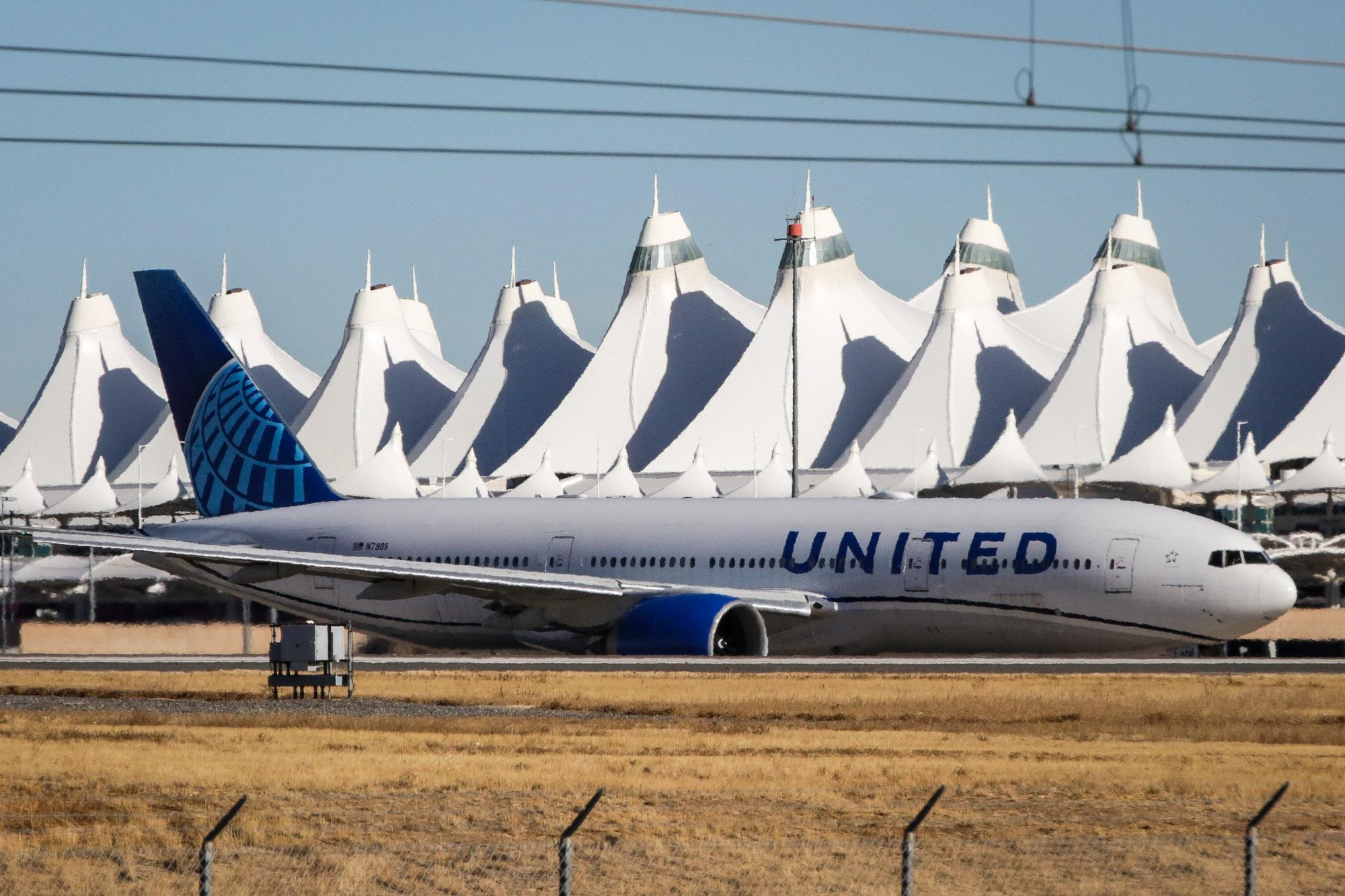
Updated Sunday at 1:09 p.m.
Air travel frustrations continued Sunday as airlines announced more delays and cancellations over the Christmas weekend. 49 flights in and out of Denver International Airport were cancelled Sunday, a majority of them coming from United Airlines. In addition, 300 flights were delayed. NPR reports more than 5,000 flights have been cancelled worldwide since Christmas Eve, a situation exacerbated by employees shortages brought on by the spread of coronavirus.
Parts of the Front Range, particularly the Eastern Plains, are experiencing strong winds, which may contribute to the delays.
Our original story follows below.
The day before Christmas, United canceled at least 25 flights in and out of Denver International Airport. That represented the bulk of 48 cancellations total at the airport through mid-afternoon Friday.
In an emailed statement, the airline told CPR News the cancellations were related to a loss of staff due to COVID-19.
“The nationwide spike in omicron cases this week has had a direct impact on our flight crews and the people who run our operation,” the airline said.
The lost DIA flights were just a small part of thousands canceled worldwide thanks to staffing shortages.
After a brief lull, parts of Colorado are beginning to see signs of rising COVID-19 cases, with an increasing percentage of them from the omicron variant. Cases in Boulder County, for example, rose 44 percent between Monday and Thursday. The health department in Pitkin County, home to Aspen, said Friday that cases there had quadrupled in the past five days, a pace not before seen during the pandemic.
The 7-day average percentage of COVID-19 tests returning positive results statewide has risen each day since Dec. 15 and is now at 9.76 percent, a growth of almost four points in eight days and an indicator of trouble ahead. The average number of cases uncovered each day during the past three days in the state was back above 3,500 through Thursday, a number last reached in mid-November at the peak of the wave caused by the Delta variant's swift spread, mostly through Colorado's unvaccinated residents. Hospitalizations, which lag new cases, are continuing to fall, but more slowly than in recent weeks. More than 80 percent of those who are hospitalized are unvaccinated.
The shift in the case numbers follows similar increases nationwide, which have now begun to show up as disruptions at businesses like airlines.
United, which has a hub in Denver, said that their cancellations represent a small portion of its 4,000 daily flights over the holidays. Delta Air Lines, whose footprint at DIA is much smaller, also canceled flights, citing the variant.
Alan Reisman, of Boulder, flew United to Kansas City for Christmas. He bought a back-up ticket home on another airline in case his return flight Dec. 26 is a no-go. “My job is such that I can’t risk not showing up on Monday. So I bought another ticket for the same route from Southwest. If that gets canceled I’ll rent a car!” Reisman is an oral surgeon and traveled with “a pile of tests” to ensure he keeps his loved ones as safe as possible.
Christmas Eve is not a peak holiday travel day. DIA says that distinction belongs to Dec. 23, 27, and 29. Nearly three million passengers are expected to travel through Denver’s airport through the first few days of January.
“We're definitely seeing more travel than last year and we're only about 5% lower than 2019,” says spokeswoman Stephanie Figueroa. She reminds anyone coming to the airport that masks are still required by the federal government.
CPR's Stina Sieg contributed to this report.









